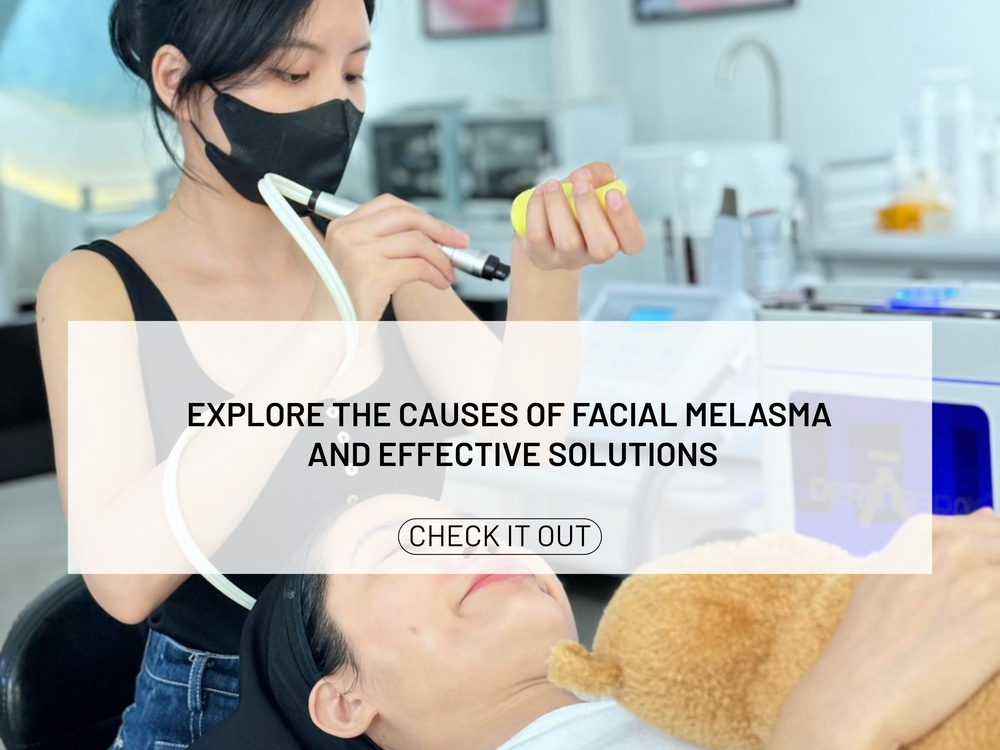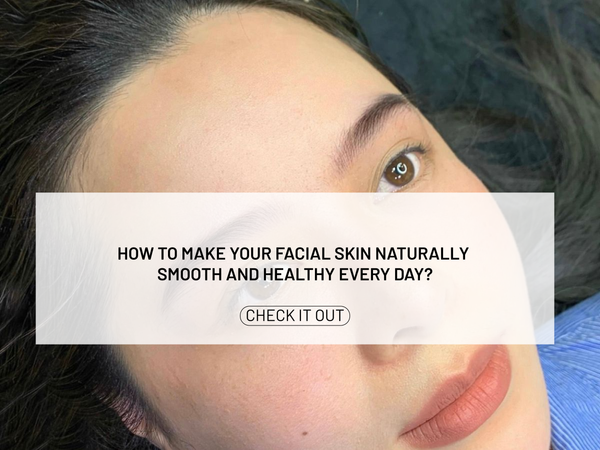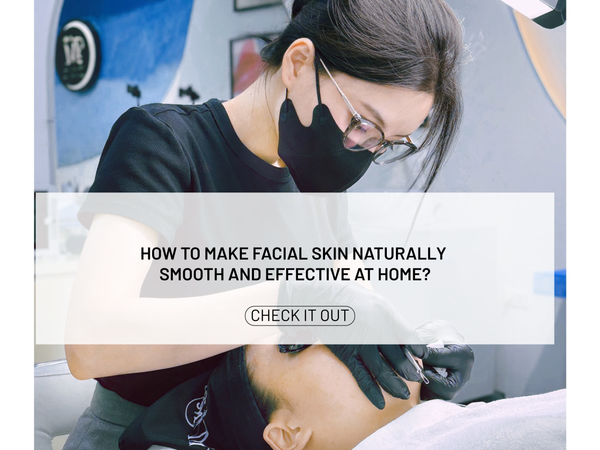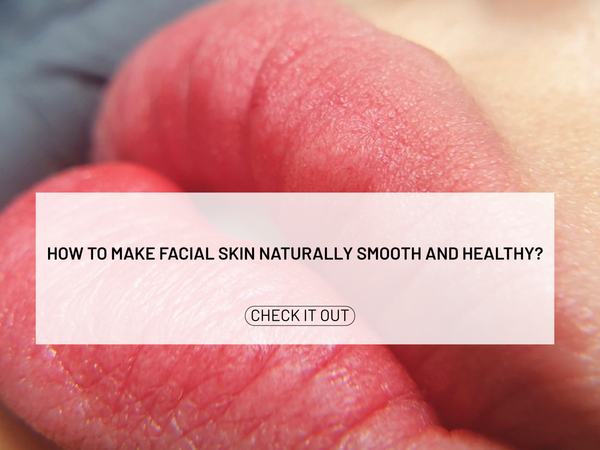Explore the Causes of Facial Melasma and Effective Solutions
Facial pigmentation is a common issue that many people face, especially women. Pigmentation can occur due to various reasons, including genetics, hormonal changes, and sun exposure. This article will help you explore the main causes of facial pigmentation and learn effective solutions for treating and preventing this condition.
Key Points
- Facial pigmentation can be due to genetics, hormonal disorders, or sun exposure.
- Daily skincare and using sunscreen are very important to prevent pigmentation.
- Using unsuitable cosmetics can worsen pigmentation.
- Treatment methods for pigmentation include topical medications, laser therapy, and mesotherapy.
- A healthy diet and vitamin supplementation can effectively support the treatment of facial pigmentation.
Causes of Facial Pigmentation Due to Genetic Factors

Impact of Genetic Factors
We cannot deny that genetic factors play an important role in the formation of facial pigmentation. If someone in the family has pigmentation, the likelihood of us experiencing this condition is very high. According to research, about 50% of people with facial pigmentation are related to genetic factors.
Preventing Genetic Pigmentation
To minimize the risk of genetic pigmentation, we can take some measures such as:
- Proper skincare: Use products suitable for your skin type.
- Protect skin from sunlight: Apply sunscreen daily.
- Maintain a healthy lifestyle: Eat a balanced diet and exercise regularly.
Treating Genetic Pigmentation
If you have genetic pigmentation, you can apply some treatment methods such as:
- Using topical medications: Creams containing skin brightening ingredients.
- Laser therapy: Helps effectively fade pigmentation.
- Proper nutrition: Supplement necessary vitamins and minerals for the skin.
Let’s explore the causes of pigmentation together and find effective solutions to protect our skin!
Impact of Hormones on Facial Pigmentation
Hormonal Changes in Women
Hormones play a very important role in maintaining skin health. Hormonal changes frequently occur during stages such as pregnancy, perimenopause, and menopause. These changes can lead to pigmentation, especially in women. We need to be aware of these effects to take timely preventive measures.
Post-Pregnancy Pigmentation
Post-pregnancy pigmentation is a common issue that many women face. During pregnancy, the levels of estrogen and progesterone hormones increase, leading to increased melanin production. This can cause pigmentation spots on the skin. To minimize this condition, we should:
- Proper skincare: Use suitable products and protect the skin from sunlight.
- Supplement vitamins: Vitamins such as A, C, and E can help improve skin condition.
- Regular check-ups: To monitor skin condition and receive advice from a doctor.
Adjusting Hormones
To adjust hormones and minimize pigmentation, we can take some measures such as:
- Maintain a healthy diet: Include plenty of greens, fruits, and omega-3 rich foods.
- Exercise regularly: Helps balance hormones and improve overall health.
- Reduce stress: Engage in relaxing activities like yoga or meditation to reduce stress.
These measures not only help improve pigmentation but also enhance overall skin health.
Impact of Sunlight on Pigmentation

UV Rays and Pigmentation Formation
Sunlight, especially UV rays, can harm our skin. When exposed to sunlight, melanin pigment in the skin is produced more, leading to pigmentation. We need to be aware of this impact to better protect our skin.
How to Protect Skin from UV Damage
To protect the skin from the harmful effects of sunlight, we can take the following measures:
- Use sunscreen daily with an SPF of 30 or higher.
- Wear protective clothing such as long-sleeved shirts and wide-brimmed hats when going outside.
- Avoid going out during peak sunlight hours, usually from 10 AM to 4 PM.
Using Sunscreen Effectively
Using sunscreen correctly is very important. We should:
- Apply sunscreen at least 15-30 minutes before going outside.
- Reapply sunscreen every 2-3 hours, especially when outdoors.
- Choose sunscreen suitable for your skin type for optimal results.
Let’s learn about the causes and preventive measures for pigmentation to protect our skin from the harmful effects of sunlight!
Using Unsuitable Cosmetics Causes Pigmentation
When we use unsuitable cosmetics, the skin can encounter many issues, including pigmentation. Choosing products of unclear origin or containing harmful chemicals can damage the skin. Here are some points to keep in mind:
Harmful Ingredients in Cosmetics
- Harmful chemicals: Many products contain strong chemicals that can thin the skin, making it more susceptible to damage and pigmentation.
- Unclear ingredients: We should avoid products without clear labeling of ingredients.
- Strong exfoliants: Using cosmetics containing strong exfoliants can cause irritation and increase skin pigmentation.
How to Choose Safe Cosmetics
- Check ingredients: Choose products with natural and safe ingredients for the skin.
- Consult experts: Before use, consult a dermatologist for advice.
- Patch test: Test the product on a small area of skin before using it on the entire face.
Remedies for Pigmentation Caused by Cosmetics
- Stop using immediately: If a product causes irritation, stop using it immediately.
- Proper skincare: Use moisturizers and sunscreen to protect the skin.
- Consult a doctor: If pigmentation does not improve, see a doctor for timely treatment.
We need to pay attention to choosing cosmetics to protect the skin from harmful effects and maintain skin health.
Effective Methods for Treating Facial Pigmentation

Using Topical Medications
We can start treating facial pigmentation by using topical medications. These products often contain ingredients like hydroquinone, azelaic acid, or retinoids. To achieve the best results, we should:
- Consult a doctor before use to choose the right product.
- Be consistent in use over a long period to see results.
- Combine with other skincare measures to enhance effectiveness.
Laser Therapy for Pigmentation
Laser therapy is one of the modern methods that effectively treat pigmentation. This method works by destroying the melanin pigments causing pigmentation. We need to note:
- Choose a reputable medical facility to perform this therapy.
- Follow the doctor's instructions to avoid side effects.
- Combine with post-treatment skincare to maintain results.
Mesotherapy
Mesotherapy is a method of injecting active ingredients into the dermis layer of the skin, helping to improve pigmentation. We should:
- Research this method thoroughly and choose an experienced doctor.
- Follow the treatment regimen as directed for high effectiveness.
- Combine with a healthy diet to support the treatment process.
Diet to Support Pigmentation Treatment
Nutrition also plays an important role in treating pigmentation. We should:
- Include plenty of greens and fresh fruits to provide vitamins and minerals for the skin.
- Drink enough water daily to keep the skin hydrated.
- Avoid harmful foods like fast food and alcohol to prevent worsening pigmentation.
We need to be patient and follow the right methods to achieve healthy and even-toned skin.
Effective Ways to Prevent Facial Pigmentation
Daily Skincare
We need to regularly care for and protect our skin to prevent facial pigmentation. Some effective measures include:
- Use sunscreen with an SPF of 30 or higher before going outside.
- Cleanse the face daily with clean water and suitable facial cleanser.
- Apply moisturizing masks to provide moisture and necessary nutrients.
Supplementing Vitamins and Nutrients
It is very important to supplement adequate vitamins such as A, C, E, and B12. We should:
- Drink enough water daily (1.5 - 2 liters).
- Limit spicy foods and alcohol.
- Eat plenty of fresh fruits and vegetables to support skin regeneration and prevent hormonal disorders.
Avoiding Stress and Anxiety
Stress can increase the risk of pigmentation. To reduce stress, we should:
- Organize reasonable rest time.
- Engage in relaxing activities like yoga or meditation.
- Avoid staying up late and using stimulants.
Let’s implement these measures together to protect our skin from facial pigmentation, helping our skin to always be healthy and radiant!
Common Mistakes When Treating Pigmentation

When treating pigmentation, we often make some common mistakes. Identifying and avoiding these mistakes is very important to achieve the best results in the treatment process. Here are some mistakes we need to pay attention to:
Using Products of Unclear Origin
- Many people often choose products of unclear origin, leading to worsening skin condition.
- We should choose products from reputable brands with certifications.
- Read the ingredients carefully to avoid harmful substances for the skin.
Treating Pigmentation Too Quickly
- Many people are impatient and want to see immediate results, using quick whitening methods.
- This can cause pigmentation to recur and even worsen.
- We need to be patient and follow the treatment regimen correctly.
Not Protecting Skin After Treatment
- After treatment, the skin is very sensitive and needs protection.
- We should use sunscreen daily and avoid sun exposure.
- Protecting the skin will help maintain long-term treatment results.
Thus, avoiding these mistakes will help us achieve healthier and more even-toned skin. Always remember that patience and proper care are the keys to effective pigmentation treatment.
When treating pigmentation, many people often make unnecessary mistakes. To have healthy and beautiful skin, you need to thoroughly research and apply the right methods. Please visit our website to explore more useful information and receive free consultations!
Conclusion
Facial pigmentation is a common issue that many people face, but not everyone knows how to treat and prevent it effectively. To have healthy skin, it is very important to care for and protect the skin. Regularly use sunscreen, maintain a healthy diet, and avoid stress. If you have pigmentation, seek a specialist for timely advice and treatment. Remember that treating pigmentation takes time and patience, so take care of your skin properly to achieve the best results.
Frequently Asked Questions
What is facial pigmentation?
Facial pigmentation refers to brown or yellow spots that appear on the skin, commonly found on the cheeks, forehead, and nose.
What causes pigmentation?
Pigmentation can be caused by genetics, hormonal changes, sun exposure, or using unsuitable cosmetics.
Can pigmentation be treated at home?
Yes, but it is important to use safe and effective products; it is best to consult a doctor.
Can pigmentation recur?
Yes, if the skin is not protected from sunlight or if proper skincare is not maintained.
How can pigmentation be prevented?
Prevent by using sunscreen, daily skincare, and supplementing necessary vitamins.
When should I see a doctor about pigmentation?
You should see a doctor if you notice that pigmentation is getting darker or increasing in number, for timely advice and treatment.



